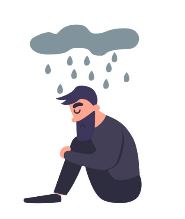According to the Sexual Advice Association1, there is a combination of both physical and psychological factors as outlined below:
Physical (on the body):
- The narrowing of blood vessels to the penis – Causes can include high blood pressure, high cholesterol and diabetes
- Conditions that affect the nervous system – including Multiple Sclerosis (MS), Parkinson’s disease, stroke, diabetes and spinal injury or disorder
- Hormonal problems – including under or overactive thyroid, a low testosterone level
- Surgery and radiation therapy for the bladder, prostate or rectal cancer
- Injury to the penis
 Excessive alcohol consumption
Excessive alcohol consumption- Side effects of prescribed medication – including diuretics (tablets that make you pee), some types of drugs taken for blood pressure, beta-blockers (slows down the heart), anti-depressant medication and anti-epileptic medication.
Psychological (in the mind):
- Depression
- Suffering stress and anxiety at work or home
- The person’s partner has sexual problems
- Relationship problems due to stress, poor communication or other problems
- Lack of self-confidence having failed before with ED and the fear of it happening again
- Worried about sexual orientation
- Suffered sexual abuse previously
- Having no desire for sex
ED is more likely to occur with people that do not follow a healthy lifestyle for example: smokers, being overweight and those that are not physically active/get enough activity.
1 https://sexualadviceassociation.co.uk/erectile-dysfunction/
